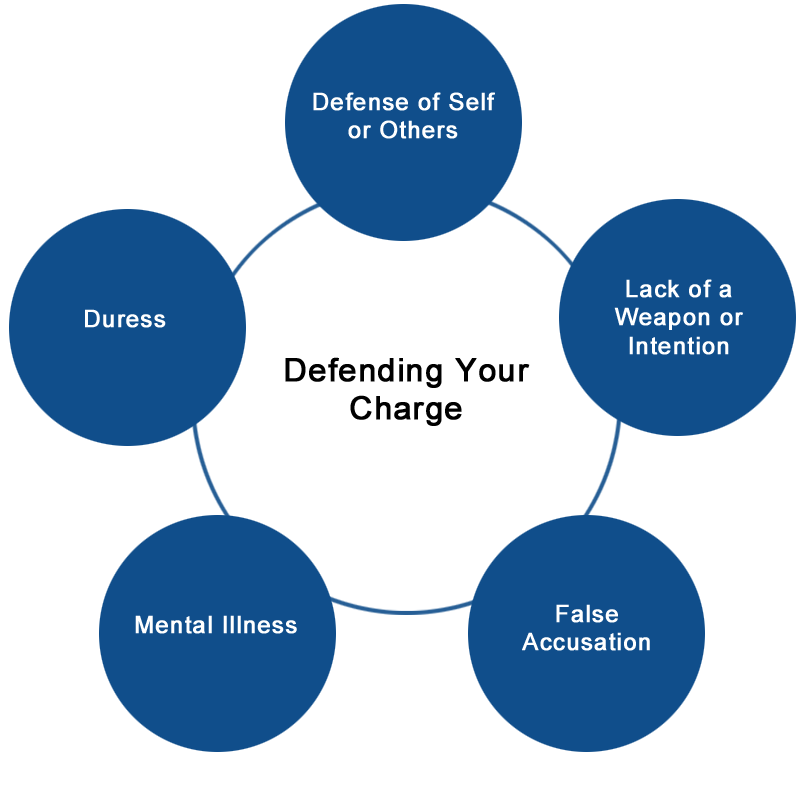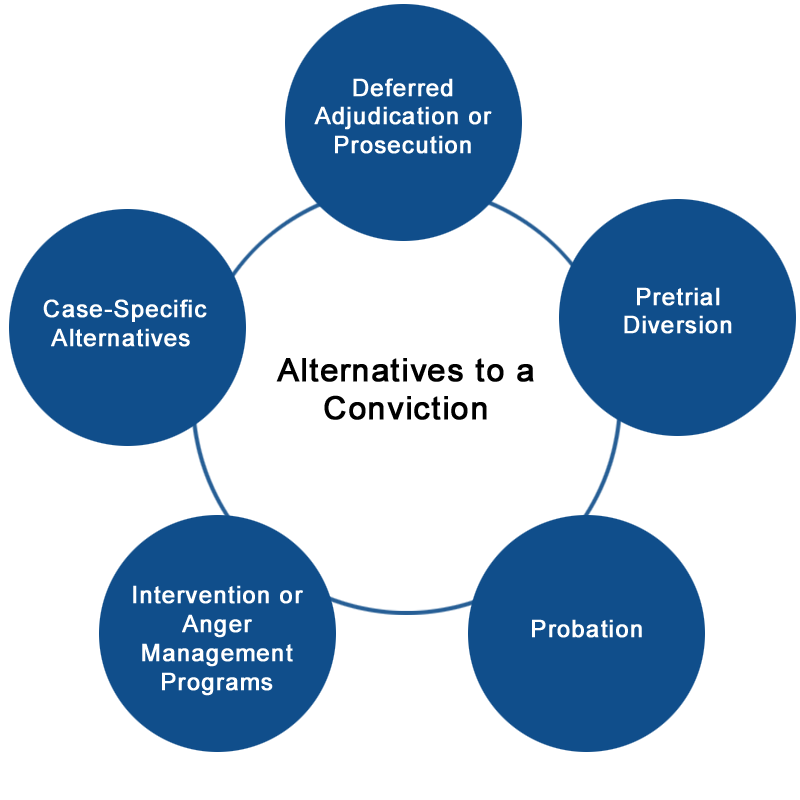
Aggravated Battery in Louisiana
The State of Louisiana defines battery as any use of unauthorized force against another person, specifically force which can lead to other offensive contact or bodily harm. What elevates a battery charge to a charge of aggravated battery is the use of a dangerous weapon.
Louisiana law allows for a broad interpretation of what constitutes a “dangerous weapon” as it relates to aggravated battery. Essentially, the law states that a dangerous weapon can be any object that can cause death or significant injury whether that is its intended use or not. The weapon in an aggravated battery case could be a traditional knife or firearm, or it could be something as otherwise innocuous as a rock or a glass bottle.
What the law ultimately says is that it’s not the object itself, but the motivation behind its use. This broad interpretation allows the law to properly address a variety of instances in which objects are used specifically to harm others.
The extent of that harm is more narrowly defined as actual damage or injury, whether minor or severe, that causes pain or affects the victim’s health. Rather than threats of impending harm, in cases of aggravated battery there must be a manifestation of the injury in question.
What are the Consequences of An Aggravated Battery Conviction?
Under Louisiana law, aggravated battery is considered a felony. As such, a conviction assures that those who are convicted will face significant jail time, fines and additional penalties.

Jail Time
Traditionally, sentencing for aggravated battery can include up to ten years or more in prison, with the potential for a portion of that time being spent in “hard labor.” This portion will be spent doing intense physical work, ranging from manufacturing to manual labor or any task required to maintain and operate state projects or prisons. Beyond that, if the victim is active duty with U.S. armed forces or is a disabled veteran, and the incident was a result of that status, one year of the sentence will be required to be served without any possibility of suspension, probation or parole.
Fines, Restitution, and Collateral Consequences
Fines can run as high as $5,000 and possibly higher. In addition to fines, those convicted may be required to pay court costs and restitution to the victim. But the long-term consequences go far beyond just fines and jail time. As a felon, those convicted will have a more difficult time securing a job, housing, education, affordable insurance or financial assistance.
They will also potentially lose civil rights ranging from voting or holding office to owning a firearm. And if they are a non-citizen of the U.S., their immigration status could be threatened.
As a crime of violence, an aggravated battery conviction cannot be expunged from a criminal record. It can, however, possibly be reduced to simple battery.
 Defending Against Aggravated Battery Charges
Defending Against Aggravated Battery Charges
An accusation of aggravated battery is not a conviction, and the burden of proof falls to the prosecution in a criminal trial. As such, a defendant does not have to prove their innocence; the prosecution has to prove their guilt. There are several strategies that can be used in defending against an aggravated battery charge or having it reduced to simple battery or dismissed. These include demonstrating:
- • Defense of Self or Others: This involves showing that the defendant was compelled to take action to counteract treats to themselves of others, using reasonable force as a means of protection.
- • Lack of a Weapon: As the use of a dangerous weapon is a prerequisite for an aggravated assault conviction, challenging the claim that such a weapon was used can disprove a vital element of the prosecution.
- • Lack of Intention: This includes claims that the harm to the victim was accidental, or at least unintentional, rather than the result of recklessness.
- • False Accusation: This strategy involves establishing an alibi or demonstrating that the accusations against the defendant were misleading, fabricated or were the result of mistaken identity.
- • Mental Illness: Requiring substantial medical evidence, this defense aims to show that the defendant is mentally incapable of being held responsible for their actions.
- • Duress: This strategy involves the defendant admitting to the claims against them, but with the caveat that they were forced to commit the act under the threat of death or harm to themselves or others.
 There are also several alternatives to a conviction that are worth exploring. These may not apply to all cases and will depend on the individual circumstances of the case. They include:
There are also several alternatives to a conviction that are worth exploring. These may not apply to all cases and will depend on the individual circumstances of the case. They include:
Deferred Adjudication or Prosecution: This means that the court will hold off on the trial process, delaying prosecution to allow the defendant to serve their sentence in other ways, such as rehabilitation or community service. Upon meeting the conditions set by the court, the defendant could potentially have the charges lifted.
Pretrial Diversion: This is a set of conditions similar to probation that are usually reserved solely for those who are eligible, such as first-time offenders. Once the pretrial diversion programs’ conditions have been satisfied, the charges may be dropped.
Probation: This could be offered as an alternative to jail time for those whom are less likely to reoffend, or might benefit from rehabilitation outside of prison.
Intervention or Anger Management Programs: While not necessarily an alternative to conviction, enrolling in programs to address the underlying factors that led to the incident could potentially sway the prosecution to reduce charges.
 The Claiborne Firm Approach
The Claiborne Firm Approach
At The Claiborne Firm, we treat every case as if it were going to trial from the moment that we meet a potential client during our free, no-obligation case evaluations. We begin devising a plan and strategy to uncover weaknesses in the opposing side’s evidence, fully understanding and addressing the vulnerabilities in your case.
Our team digs deeper, exploring every possibility and presenting a broader range of solutions to ensure that we know more about the case than the prosecution and police. With that depth of knowledge and insight, we walk into the courtroom better prepared to have your aggravated battery charge reduced or dismissed before trial. If the prosecution still does not budge, our defense team has a solid track record of securing full acquittals at jury trials.
Knowledge is the key to a successful defense. Help secure your freedom and your peace of mind by submitting your contact information below to learn how The Claiborne can help you achieve the best possible outcome for your aggravated battery charge.
Call (504) 294-8552 or Schedule a Free Case Evaluation Online
